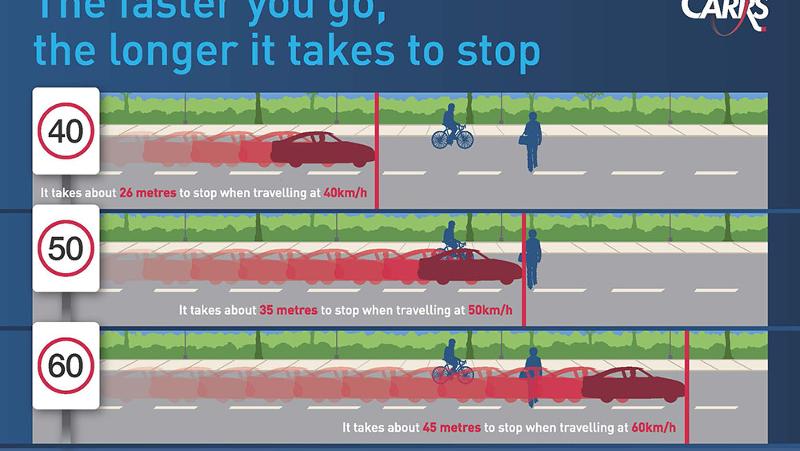
Would you get behind the wheel drunk? Would you travel 65km/h in a 60 zone? The impact on driving performance is roughly the same, and is the message QUT’s Centre for Accident Research & Road Safety - Queensland (CARRS-Q) is highlighting on the first day of Queensland Road Safety Week 2017.
CARRS-Q Centre Director Professor Narelle Haworth said almost everybody refused to drive when they had been drinking but many people hadn't accepted that speeding was equally as dangerous.
"In road crashes the amount of energy that needs to be absorbed by vehicles and human bodies is proportional to the square of speed," Professor Haworth said.
"Double the speed means four times as much energy.
"Some modern cars are much safer than other in a crash, but the speeds at which they can protect their occupants in particular types of crashes are still alarmingly low."
QUT’s Dr Angela Watson is an expert in analysing data to provide a comprehensive picture of transport-related crashes and related injuries.
“When it comes to speeding we know that it is a major factor in serious and fatal crashes and travelling just 5km/h over the limit in urban areas, and 10km/h in rural areas are enough to double the crash risk,” Dr Watson said.
“This is roughly equivalent to the increase in risk associated with a blood alcohol concentration of 0.05.
“While many drivers could put hand on heart and say they would never drink and drive, the same cannot be said for drivers who exceed the speed limit.”
Dr Watson said the data showed there were groups of drivers over-represented in speeding offences and speed-related fatalities.
“For example, younger drivers, particularly younger men are at a higher risk of committing a speeding offence and of being a repeat speeding offender,” she said.
“Males are generally over-represented in speed-related fatality statistics.
“We also know that people who have committed two or more high-range speeding offences (more than 30km/h above the speed limit) are more likely to have committed other driving offences and have a criminal history.
“This tells us that people often drive as they live – risky on the roads, risk-takers in life.”
Dr Watson said while there was no simple solution to prevent drivers from speeding, technology offered options for deterring repeat offenders.
“For example, the use of new in-vehicle technologies such as intelligent speed adaptation that notifies drivers when they are over the speed limit or restricts drivers from exceeding the speed limit may prove useful for repeat offenders,” she said.
“Enabling mandatory speed limiting devices for repeat speeders and encouraging insurers to offer lower premiums associated with voluntary fitting of speed adaptation devices for young drivers, could also offer options.
“At CARRS-Q we want people to understand the consequences of speeding and to gain a greater understanding of the impact it has on themselves, their families and the community in a crash.”
CARRS-Q is actively supporting Queensland Road Safety Week and is urging the community to get involved by participating in the many events occurring across Queensland this week, including the 2017 Queensland Road Safety Awards and Community Engagement Workshop being held in Bargara, near Bundaberg on Wednesday August 23.
CARRS-Q has also collaborated with Budget Direct, who have produced an interactive resource for Queensland Road Safety Week aimed at providing useful tips and information on how to stay safe on our roads. View resource here.
For further program details, contact k31.smith@qut.edu.au
Media contacts:
Sandra Hutchinson, QUT Media, 07 3138 9449 or media@qut.edu.au
After hours, Rose Trapnell, 0407 585 901 or media@qut.edu.au




